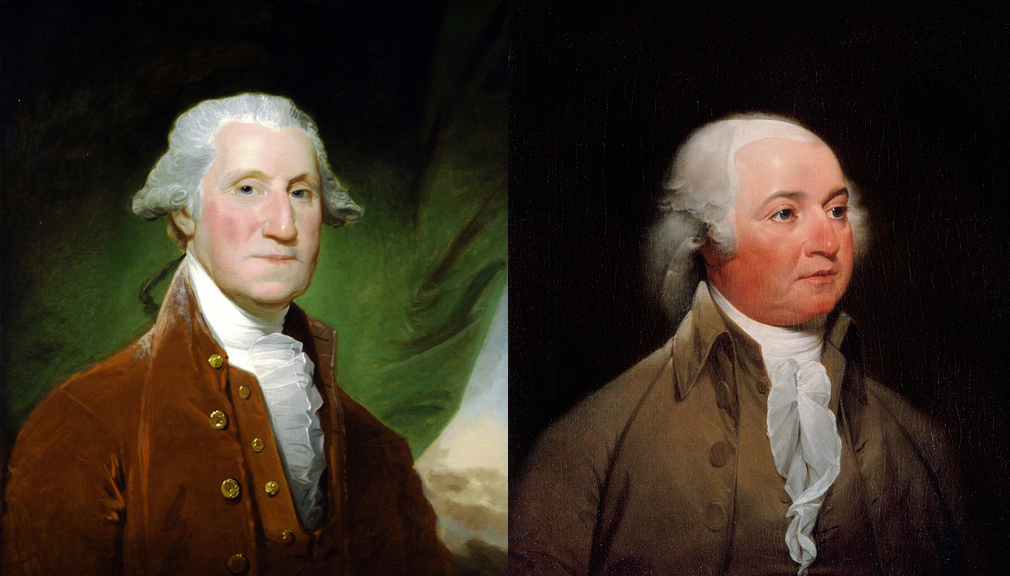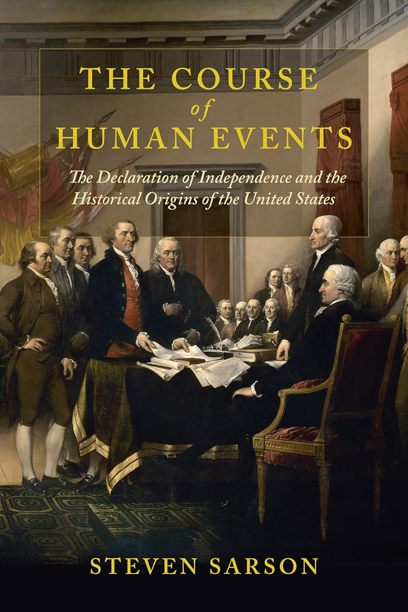
Myth:
Thomas Jefferson found the ideas for the Declaration of Independence “from deep within himself.” (Joseph Ellis, American Sphinx.)
Busted:
Not according to Jefferson. The “the object of the Declaration of Independence,” he wrote, was “not to find out new principles, or new arguments, never before thought of, not merely to say things which had never been said before; but to place before mankind the common sense of the subject, in terms so plain and firm as to command their assent, and to justify ourselves in the independent stand we are compelled to take. Neither aiming at originality of principle or sentiment, nor yet copied from any particular and previous writing, it was intended to be an expression of the American mind.”
In the fall of 1775, Americans learned that King George III had declared the British colonies from New Hampshire to Georgia to be in a state of rebellion. To suppress that uprising, he dispatched thousands of additional troops and dozens of ships, and on October 18, some of those ships leveled the town of Falmouth. After these aggressive moves, Americans outside of rural Massachusetts (see America’s First Declaration of Independence, February 20), for the first time, began to discuss “independence” openly.
For the next several months, the American people engaged in a fierce public debate: should they take that final step and break from Britain? Thomas Paine’s provocative Common Sense, published in January 1776, helped mainstream such a radical notion (see the next MythBuster post), and come spring, various public bodies declared that they were ready to declare independence. Historian Pauline Maier has uncovered 90 sets of instructions by state and local bodies, telling their representatives in higher bodies (ultimately, the Continental Congress) to declare independence.
One example: On May 15, having just learned that 45,000 troops (including foreign mercenaries from Hesse and other German states) were headed to North America, the Virginia Convention resolved that “the Delegates appointed to represent this colony in General Congress be instructed to propose to that respectable body to declare the United Colonies free and independent states, absolved from all allegiance to, or dependence upon, the Crown or Parliament of Great Britain; and that they give the assent of this colony to such a declaration, and to whatever measures may be thought proper and necessary by the Congress for forming foreign alliances, and a Confederation of the Colonies.” Three weeks later, on June 7, Richard Henry Lee, following these instructions, moved in Congress to declare independence, seek alliances, and develop a formal plan of confederation.
Thomas Jefferson knew all this. The day after he was appointed to the five-man committee charged with explaining American independence to the world, he read in the Pennsylvania Gazette George Mason’s draft for a Declaration of Rights, intended to accompany the new Constitution for the newly independent state of Virginia: “That all men are born equally free and independent, and have certain inherent natural Rights… among which are the Enjoyment of Life and Liberty, with the Means of acquiring and possessing Property, and pursueing and obtaining Happiness and Safety.”
Jefferson restated these noble sentiments in the Declaration of Independence, simplifying the prose: “We hold these truths to be self-evident, that all men are created equal, that they are endowed by their Creator with certain unalienable Rights, that among these are Life, Liberty and the pursuit of Happiness.”
Mason wrote further: “That all power is vested in, and consequently derived from, the people… That government is, or ought to be, instituted for the common benefit, protection, and security of the people, nation or community.”
And Jefferson echoed: “That to secure these rights, Governments are instituted among Men, deriving their just powers from the consent of the governed.”
To us, Jefferson’s prose seems more refined, but at the time people seem to have preferred Mason’s more cumbersome wording. Four of the new constitutions (Pennsylvania, Massachusetts, New Hampshire, and Vermont) repeated Mason verbatim; none followed Jefferson. In fact, the exact wording of the Declaration of Independence meant little to Revolutionary Americans; it was the fact of independence they celebrated, not the explanation of it. Jefferson’s Declaration was rarely mentioned, much less quoted, at the Constitutional Convention or during the ratification debates. The two contemporary histories of the Revolution make no fuss over Jefferson’s authorship. David Ramsay (The History of the American Revolution, 1789) fails to mention it at all, while William Gordon (The History of the Rise, Progress, and Establishment of the Independence of the United States of America, 1788) simply includes Jefferson as one of a five-man committee.
That changed when Jefferson came to head a political party at the turn of the century. To highlight their patriotism, Jefferson’s Republicans cited the Declaration and touted the genius of its author, who happened to be their standard-bearer. While Federalists laid claim to the Constitution, which was indeed their handiwork, Republicans pronounced ownership of their own founding document.
Today, textbooks have started to shy away from the “unique genius” interpretation, but most pull back only modestly. Jefferson worked on a committee, they say, and his initial draft was slightly modified. But that misses the main point. The ideas set forth in the Declaration of Independence were not owned by any individual, committee of five, or even the Continental Congress. They were indeed “the American mind,” as Jefferson claimed.
Further Readings:
Pauline Maier, American Scripture: Making the Declaration of Independence (New York: Vintage, 1998). The list of state and local declarations, with citations, appears on 217-23; examples are reprinted on 225-34. Ray Raphael, Founding Myths: Stories That Hide Our Patriotic Past, (New York: New Press, 2004), chapter 6. Ray Raphael, “Instructions: The People’s Voice in Revolutionary America,” in Common-Place 9:1 (October, 2008), http://www.common-place.org/vol-09/no-01/raphael/. Philip F. Detweiler, “The Changing Reputation of the Declaration of Independence: The First Fifty Years,” William and Mary Quarterly, Third Series, 19:4 (1962), 557-74.









3 Comments
Great post on Jefferson…..love what you are doing!
Thanks,
Jon
I enjoyed reading your post. It reminded me that nothing should be taken for granted. After reading this: Jefferson’s quote… “it was intended to be an expression of the American mind.” I wonder if Jefferson, indeed all those involved, had the sense that what they were actually writing was an expression of the dreams beyond American shores?
Yes, Glenn, I too think they saw themselves on a world stage. They were Enlightenment thinkers and doers, undertaking a grand experiment. Personally, I think this feeling extended beyond the famous leaders. As risky as their actions, people had to see what they were doing as a noble thing, pregnant with meaning.